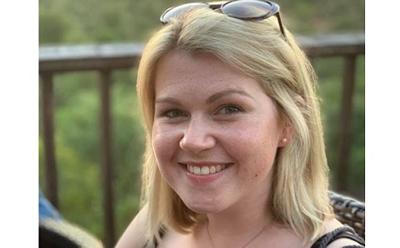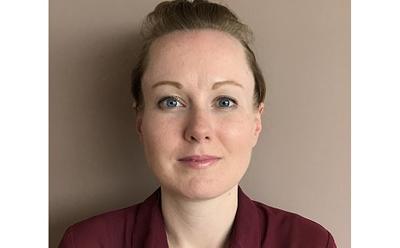%20-%20mediabin%20resized.jpg_SIA_JPG_fit_to_width_INLINE.jpg)
Thursday 20th May is International Clinical Trials Day, a day to celebrate research and the vital trials that mean new treatments can be safely brought to patients.
Due to the pandemic, the past year has proved extremely challenging for everyone involved in health care and research, and the Southampton Clinical Trials Unit has been no exception with our staff having to adapt to unprecedented times to make sure our vital work can continue.
I am incredibly proud of everyone at SCTU and what we have been able to achieve. Not only have we quickly set up ground-breaking trials to test potential COVID-19 treatments, but we have worked tirelessly to keep our other trials running as smoothly as possible.
We have been speaking to some of the staff in different teams across the unit to give you a greater understanding of the work they do and how they have been able to adapt to these difficult circumstances.
Gareth Griffiths, Director of the Southampton Clinical Trials Unit
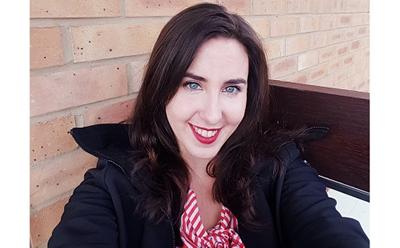
Susi Renz - Trial Manager
I’m the trial manager on the SAFA study, trialling a new treatment for female adult acne. This means I am the main contact for the trial site staff, and work with the data manager and statisticians.
I love the variety of tasks I have as a Trial Manager, like the day-to-day queries from trial sites, preparing reports for the different trial committees, or creating and updating the trial website. I’m also responsible for making the necessary changes if certain aspects of the trial require adaptation, and this part of my role became particularly important because of the COVID-19 pandemic.
When recruitment into non-COVID-19 studies was paused at the beginning of the pandemic, we had to think about the changes we needed to make to the trial design and processes in order to be able to continue recruitment. This included a reduction of face-to-face trial visits, remote follow-up visits, and posting study medication and questionnaires to participants. We also decided to utilise social media advertising to identify eligible women interested in taking part in the trial. By running the adverts in house, we were able to control the design, and determine the geographical areas and the timing of the adverts. The campaign has been hugely successful and social media advertising is now our main way of identifying patients for the study with ~60% of women contacting us being recruited into the trial.
I feel the past year has put a spotlight on clinical trials and more people are now aware of clinical trials. And even thought I wasn’t directly involved in any of the COVID-19 trials, I feel proud of what we as a CTU have achieved over the past year.
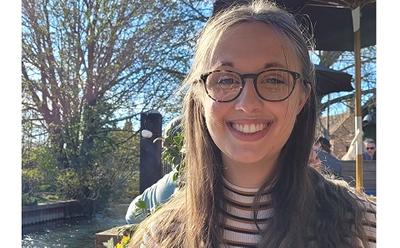
Kayleigh Hill - Medical Statistician
As a statistician, I spend my time doing a wide range of things from writing programmes in statistical software, to carrying out analyses for trials, and doing sample size calculations to work out the number of patients needed for a trial. We’re always very busy!
We work on several trials at a time, each usually at different stages. At the moment, I am mainly working on CONFIRM, a lung cancer trial in the final analysis stage, and SoMOSA which is an asthma study where the data are being anonymised ready for external data sharing.
Liaising with the other teams in the CTU is important in ensuring that deadlines are met. The data team do an amazing job in making sure that the data are as complete and clean as possible to make our job performing analyses run smoothly. Within the CTU it’s so easy to ask questions if there is something you are unsure of, lots of us come from different backgrounds so there’s always chances to learn new things from colleagues. And we also have a laugh which has most definitely helped me through some tough days. Working with likeminded people who are super-supportive is great.
By working in a CTU you can see how the work we do will provide so much benefit to patients, and this is a massive motivation for me and makes me proud to do my job. There are always opportunities to share your achievements with others which is very rewarding.
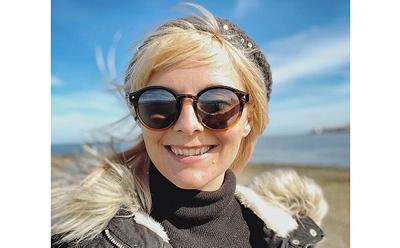
Charlotte Stuart - Clinical Trials Data Manager
I am currently working on the ELEVATE trial which will test the efficacy of combining two immunotherapies for treating patients with advanced, previously treated oesophagogastric cancer.
The primary reason for doing any study is to collect data to help advance our understanding of diseases and inform better patient care and treatment. The data team help collect and manage that all-important data as well as make sure it is organised and accurate to allow the stats team to analyse it, and we provide trial management with reports on how trials are going.
Designing and building databases that not only capture the data but also automatically checks for errors and automatically calculate other fields can be very complicated, but the more challenging something like that is, the more I enjoy it!
It’s really important that clinical trials are run well so that the data and results can be trusted and accepted, and patients can more quickly benefit from what was learnt. But running a clinical trial is a massive and challenging endeavour. Clinical trials units like the SCTU provide the experience, expertise and organisation needed to run top-quality and impactful clinical trials and so I am very proud to be part of the team delivering this. However, I started my current role within the SCTU in the middle of the COVID-19 pandemic with everyone working remotely, but hopefully I will get to actually meet all my colleagues in-person soon!
